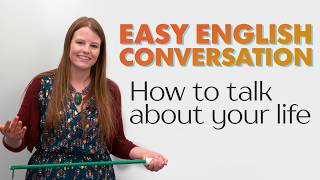
Easy English: Talk About Your Life – Birth, Job, Marriage, and more! สาธารณะ
ประเภท:
ลักษณะ:
Learn how to talk about different life stages in English – from birth to retirement and beyond.
We’ll cover useful vocabulary and phrases such as:
• “Where were you born?”
• “What do you do for a living?”
• “They are engaged.”
• “Are you married?”
• “She is having a baby.”
• “He retired last year.”
• “She passed away peacefully.”
You’ll also learn about common grammar and vocabulary mistakes people make when talking about their lives – and how to fix them.
Whether you’re a beginner or just reviewing, this video will help you speak more confidently about your life and the lives of others in English. https://www.engvid.com/easy-english-talk-about-your-life-stages/
More of my Easy English Conversation videos:
How to tell a story in English https://youtu.be/4OlTWMfIQ8U
"Did you know?" or "Do you know?" https://youtu.be/p1D3GmN_24A
In this lesson:
0:00 English for all the stages of life!
1:28 Birth
6:27 Graduation
9:30 Work
13:22 Engagement
15:51 Wedding & Marriage
23:41 Having a baby
26:47 Retirement
29:39 DEATH
Transcript:
Hello, my name is Emma, and in todays video, I am going to teach you English for life. So what do I mean by that? Well, there are many important English expressions and words we use when we talk about life events and life stages. Ive drawn here a timeline to kind of show you what I mean. So in this video, I am going to teach you some key expressions or words when were talking about people and their birth or when they are born. Were going to talk about some key words about school and education, some key words and expressions for work, for when people get married and have families, for retirement, and then for when people die. So many of us are in different stages of our lives, and so whether youre talking about yourself or someone else, we use these words a lot. Ive also noticed many learners make mistakes with a lot of the words Im going to teach you today.
So lets look at an example of this. Well start with birth words, and then well move through life. Many learners have trouble with the word "birth" and "born". They dont know how to talk about birth. So, I want us to do a practice quiz, and then afterwards, Ill tell you the answer and explain. So my question is, which is correct? Do we say, "I born in Canada."? I borned in Canada with ED. I birthed in Canada. I am born in Canada, and notice theres no ED here, or I was born in Canada without ED. So which of these is the right way to talk about where our birth happens? Well, if you said answer number five, you are correct. The way we talk about birth and being born is we say, "I was born in Canada." So I see a lot of learners making mistakes with this specifically, so lets see some more examples of this and practice this.
So lets look at different subjects and how we use "born" with them. So, "I" is a subject, "was", "born". Again, when we use "born", we need something before it, either "was" or "were". I was born in - we often use the preposition "in" with "born", and we can say either a year or a place. I was born in Canada. I was born in Toronto. I was born in - Im not going to tell you the year I was born, I dont want you to know my age, but just for practice, I was born in 1954.
Okay, we can also do "you". "You" is a subject, and now because we need the subject to match the verb, we have "were". You were born in - and then you can put a year or a place. He or she - so he was born in, she was born in, and again, you end up with a year or a place. We were born in - and they were born in. So pay close attention just for the agreement with "they" and "were", "we were", "he was", "she was", "you were", "I was". Alright, and again, notice there is no "ed" with "born", so we say "I was born", no "ed" needed.
Alright, so how can you use this in a conversation? Well, we often ask people questions about their birth. So we might ask somebody, "Where were you born?" And this is a great question to memorize. So we have "where", our question word, so we want to know the place, "were you born?" And again, notice our "be" verb is just right after "were", and then we have our subject word, and these two need to be in agreement, they need to match, "Where were you born?" So you can say this out loud, practice it, "Where were you born?" You might ask somebody, "When?" Women often dont like this question, but just so you can see how to ask the question, you can say, "When were you born?" Or maybe were talking about someone else, "When was she born?", "When was Taylor Swift born?", "When was Drake born?" So this is how we would use this question. So I have some examples down here. Like I mentioned before, if we use the year, we can have the preposition "in". She was born in 1984. She was born in May. So we can also use it for a month, but if we are using a specific birthday, we need to use "on". She was born on May 24th, 1984. He was born on December 31st, 1982. […]
We’ll cover useful vocabulary and phrases such as:
• “Where were you born?”
• “What do you do for a living?”
• “They are engaged.”
• “Are you married?”
• “She is having a baby.”
• “He retired last year.”
• “She passed away peacefully.”
You’ll also learn about common grammar and vocabulary mistakes people make when talking about their lives – and how to fix them.
Whether you’re a beginner or just reviewing, this video will help you speak more confidently about your life and the lives of others in English. https://www.engvid.com/easy-english-talk-about-your-life-stages/
More of my Easy English Conversation videos:
How to tell a story in English https://youtu.be/4OlTWMfIQ8U
"Did you know?" or "Do you know?" https://youtu.be/p1D3GmN_24A
In this lesson:
0:00 English for all the stages of life!
1:28 Birth
6:27 Graduation
9:30 Work
13:22 Engagement
15:51 Wedding & Marriage
23:41 Having a baby
26:47 Retirement
29:39 DEATH
Transcript:
Hello, my name is Emma, and in todays video, I am going to teach you English for life. So what do I mean by that? Well, there are many important English expressions and words we use when we talk about life events and life stages. Ive drawn here a timeline to kind of show you what I mean. So in this video, I am going to teach you some key expressions or words when were talking about people and their birth or when they are born. Were going to talk about some key words about school and education, some key words and expressions for work, for when people get married and have families, for retirement, and then for when people die. So many of us are in different stages of our lives, and so whether youre talking about yourself or someone else, we use these words a lot. Ive also noticed many learners make mistakes with a lot of the words Im going to teach you today.
So lets look at an example of this. Well start with birth words, and then well move through life. Many learners have trouble with the word "birth" and "born". They dont know how to talk about birth. So, I want us to do a practice quiz, and then afterwards, Ill tell you the answer and explain. So my question is, which is correct? Do we say, "I born in Canada."? I borned in Canada with ED. I birthed in Canada. I am born in Canada, and notice theres no ED here, or I was born in Canada without ED. So which of these is the right way to talk about where our birth happens? Well, if you said answer number five, you are correct. The way we talk about birth and being born is we say, "I was born in Canada." So I see a lot of learners making mistakes with this specifically, so lets see some more examples of this and practice this.
So lets look at different subjects and how we use "born" with them. So, "I" is a subject, "was", "born". Again, when we use "born", we need something before it, either "was" or "were". I was born in - we often use the preposition "in" with "born", and we can say either a year or a place. I was born in Canada. I was born in Toronto. I was born in - Im not going to tell you the year I was born, I dont want you to know my age, but just for practice, I was born in 1954.
Okay, we can also do "you". "You" is a subject, and now because we need the subject to match the verb, we have "were". You were born in - and then you can put a year or a place. He or she - so he was born in, she was born in, and again, you end up with a year or a place. We were born in - and they were born in. So pay close attention just for the agreement with "they" and "were", "we were", "he was", "she was", "you were", "I was". Alright, and again, notice there is no "ed" with "born", so we say "I was born", no "ed" needed.
Alright, so how can you use this in a conversation? Well, we often ask people questions about their birth. So we might ask somebody, "Where were you born?" And this is a great question to memorize. So we have "where", our question word, so we want to know the place, "were you born?" And again, notice our "be" verb is just right after "were", and then we have our subject word, and these two need to be in agreement, they need to match, "Where were you born?" So you can say this out loud, practice it, "Where were you born?" You might ask somebody, "When?" Women often dont like this question, but just so you can see how to ask the question, you can say, "When were you born?" Or maybe were talking about someone else, "When was she born?", "When was Taylor Swift born?", "When was Drake born?" So this is how we would use this question. So I have some examples down here. Like I mentioned before, if we use the year, we can have the preposition "in". She was born in 1984. She was born in May. So we can also use it for a month, but if we are using a specific birthday, we need to use "on". She was born on May 24th, 1984. He was born on December 31st, 1982. […]
ต่อไป
เล่นอัตโนมัติ
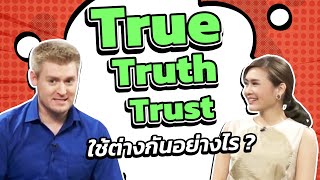
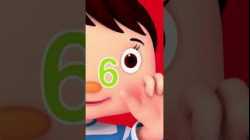
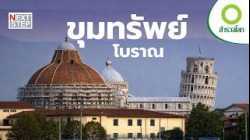
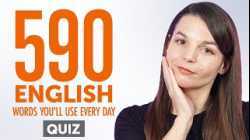
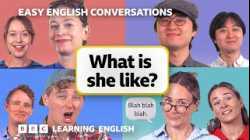
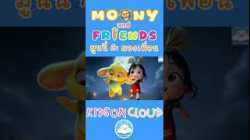
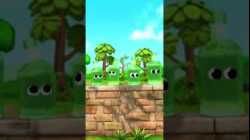
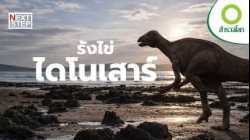
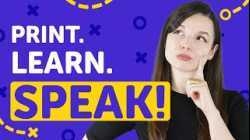
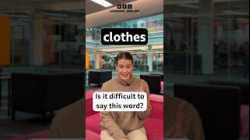
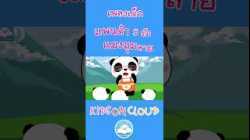
7 เดือน